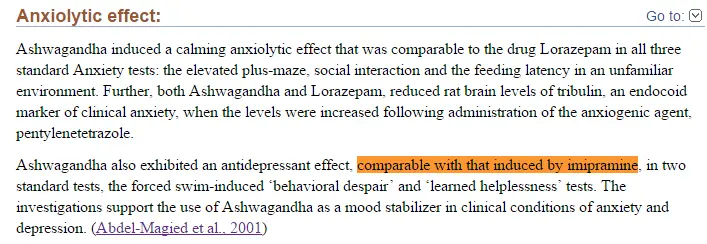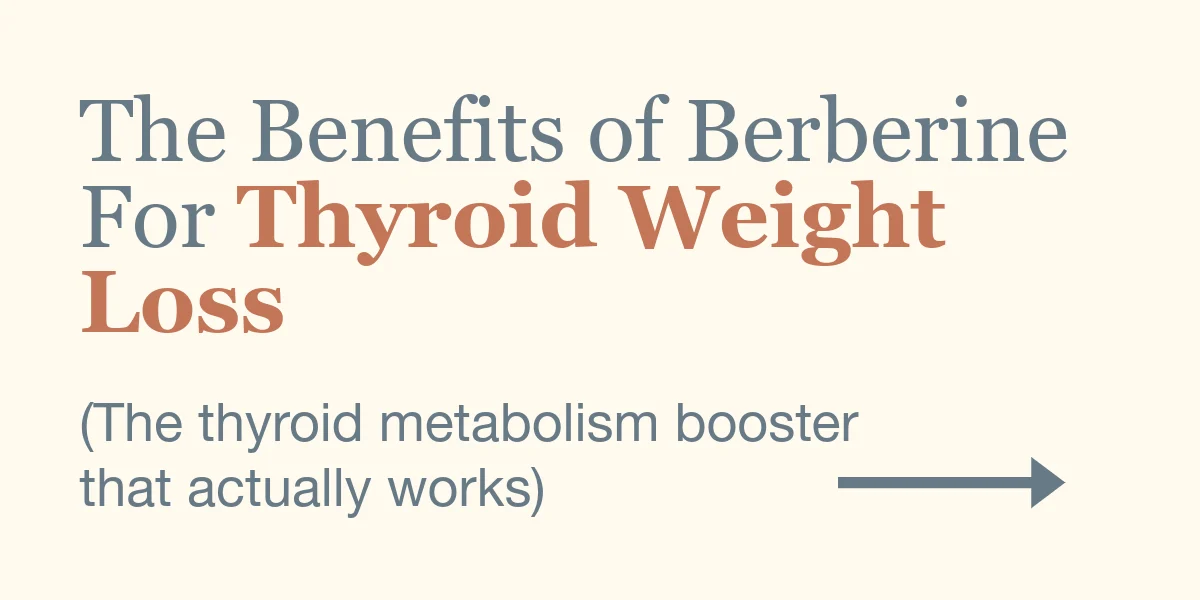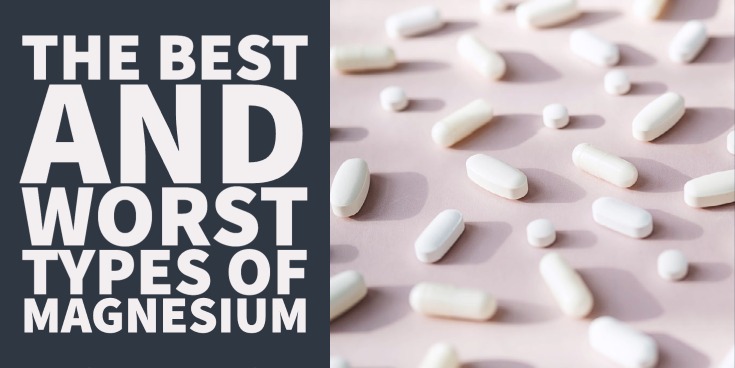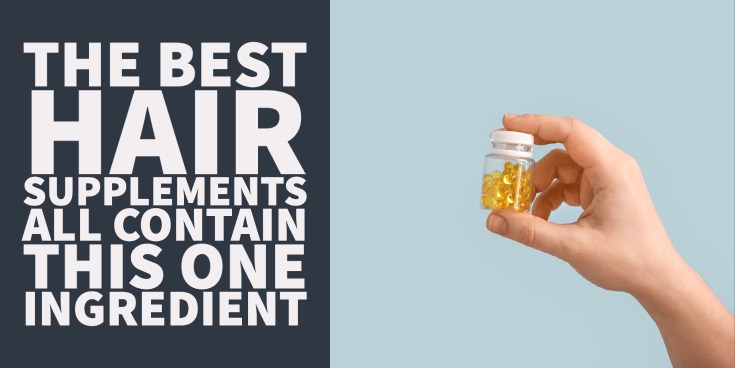Can this 4,000-year-old adaptogenic herb really help with weight loss, hypothyroidism, adrenal problems, and low sex drive?
I’m going to make the case (through a combination of scientific studies and personal experience) that Ashwagandha can/may help you with these stubborn conditions.
If you’ve been considering the use of Ashwagandha for any of these conditions please read this entire post which will outline not only what conditions this adaptogen will treat, but also how to properly take it and for what length of time.
Let’s start by talking about how Ashwagandha can actually help treat weight loss resistance and who should consider using it…
Ashwagandha and Weight Loss
We are going to talk about the many benefits of Ashwagandha as it relates to hormone balance (including thyroid, adrenal, and sex hormones) but first, it’s worth spending some time on how it alters weight.
To start let’s answer the question:
Does Ashwagandha help with weight loss?
The truth is that this adaptogen has many beneficial properties that may actually influence weight loss and help some patients lose weight.
Now, this weight loss is not likely to be dramatic on its own, but if coupled with other therapies then ashwagandha may increase total weight loss.
And this is indeed how I use this adaptogen in my practice.
Never as a stand-alone supplement designed for weight loss by itself, but instead as part of a comprehensive treatment plan that will augment weight loss efforts.
So let’s talk about how this Ashwagandha helps with weight loss using scientific studies and a touch of logic.
5 Ways Ashwagandha Can Help with Weight Loss:
Remember we are going to be using our current understanding of weight loss, mixed with scientific studies showing the beneficial side effects of this adaptogen.
#1. Increases muscle mass
Hopefully, I don’t need to convince you that the more muscle mass you have in your body, the higher your metabolism will be (1).
Not only does muscle mass increase your resting energy expenditure (AKA your metabolism) but it also improves longevity and leads to long-lasting and sustained health throughout life.
Think of it like this: your quality of life is improved, you’re less likely to fall and break bones, you’re more likely to maintain testosterone levels (and other hormones), etc.
So how does Ashwagandha fit in?
It turns out that studies have shown (2) that supplementation with Ashwagandha significantly increases muscle mass and strength.

This effect can be compounded with the addition of high-intensity (slow weight training) to further maximize the benefits of muscle growth.
- Bottom line: Ashwagandha can help boost muscle mass and strength which may lead to an increase in your metabolism which may improve weight loss.
#2. Increases energy levels
This is another benefit that shouldn’t need too much explanation.
As an adrenal adaptogen and as an Ayurvedic herb increasing energy is one of its main functions!
But let’s also bring some science into the mix to talk about how this might be.
In this study (3), long-duration cyclists taking Ashwagandha showed improvement in VO2 max, METS, and time till exhaustion compared to other cyclists who were taking a placebo supplement.

What’s even more interesting is how this likely occurs:
Ashwagandha and other peripheral adaptogens can increase mitochondrial energy production by utilizing oxygen consumption and delivery, increasing vascularity, and increasing the density and utilization of mitochondrial enzymes.
The net result is the increase in the subjective sense of energy that many patients feel while using Ashwagandha.
- Bottom line: Ashwagandha helps increase energy levels by increasing oxygen consumption and delivery in mitochondria (the powerhouse of the cells). This results in a subjective increase in energy levels.
#3. Boosts Thyroid Function
Proper thyroid function is critical to maintaining normal body weight.
Why?
Because your thyroid (in conjunction with other hormones) helps set the metabolism of your entire body.
T3 thyroid hormone is a major regulator of mitochondrial energy production (4) (and recall that mitochondrial energy production is what gives you energy and burns fat).
Not only does T3 set your baseline metabolism, but it’s also responsible (in part) for your subjective sense of energy.
Ashwagandha has been shown to increase free T4 levels (5) providing more substrate for T3 conversion (it gets a lot better and we will discuss the benefits to thyroid function below).
In this particular study, there was a random patient who also had subclinical hypothyroidism as diagnosed by TSH testing that was found to normalize after the use of Ashwagandha.
- Bottom line: Ashwagandha may improve thyroid function by helping to increase T4 levels of thyroid hormone. T4 is the substrate for T3 and T3 thyroid hormone sets your metabolism and energy levels.
#4. Improves sleep
If you didn’t already know, a general lack of sleep (6) (this includes both a decrease in quality and length of sleep) can lead to weight gain.
This occurs through several mechanisms including changes in glucose homeostasis and inflammatory levels all of which lead to hormone imbalances that promote weight gain.
This makes addressing sleep very important if you are trying to lose weight.
In fact, the impact of lack of sleep on weight gain (and preventing weight loss) is so powerful that this becomes one of my main concerns when I treat patients.
Not addressing sleeping issues will blunt your weight loss efforts significantly.
And that’s where Ashwagandha comes in:
Ashwagandha has been shown to improve the quality of sleep (7) and actually help some patients fall asleep.
This benefit seems to occur without addressing the length of sleep, so the mechanism of action is likely in the GABA pathway (or some other neurotransmitter pathway).
- Bottom line: Ashwagandha helps improve the depth and quality of sleep which may help patients with a general lack of sleep lose weight and improve glucose parameters.
#5. Helps manage stress
Stress (a nebulous term but one that we will define soon) has been shown many times to be associated with weight gain (8).
You might not have realized it, but look back on a time in which you were under a lot of stress – did you gain weight? did you lose sleep? did your eating habits change?
You may have noticed that MANY of these negative changes that alter weight seem to go together.
This response seems at least in part to be mediated through the hormone cortisol.
Cortisol is your stress hormone (released in response to perceived stress) and part of its release changes other hormones which allow the body to “handle” the stress that you are under.
So how does Ashwagandha help?
This adaptogenic herb helps the body tolerate stress by influencing stamina (9).
It also likely plays some role in cortisol regulation (most likely at the receptor level) to help the body “manage” high levels and prevent “tolerance” or receptor resistance.
- Bottom line: Ashwagandha helps the body tolerate and manage stress levels by improving stamina and likely impacts cortisol levels in some way. These benefits help blunt the negative effect that high cortisol has on weight.
Now I want you to take a minute and let what we just discussed sink in.
We talked about (and showed through many studies) that weight gain really isn’t a product of calories.
Instead weight gain (and thus weight loss) is more a function of hormone levels and hormone balance than anything else.
This is why a comprehensive approach that includes the evaluation of hormone levels, nutrient levels, and lifestyle factors will always be superior for weight loss to other methods.
Ashwagandha & Thyroid Function
Another huge benefit of using Ashwagandha is its ability to improve thyroid function.
When we talk about using Ashwagandha there are 3 main categories of people (and conditions) where patients should consider using this adaptogen.
These 3 categories include:
- Patients with Weight loss resistance (we discussed this group above)
- Patients with Hypothyroidism <— this group is our focus right now
- Patients with Adrenal related problems (we will discuss this group below)
Generally what you will find is that these 3 conditions tend to accompany each other, for reasons explained above.
What’s important here is that we discuss how Ashwagandha can positively influence thyroid levels in the body and why you might want to consider using Ashwagandha if you have thyroid-related problems.
Hypothyroidism and subclinical hypothyroidism are incredibly common showing a prevalence of up to 15% depending on which studies you look at.
That basically means you have a 1 in 7 to 1 in 8 chance of having hypothyroidism.
This number is likely much higher but due to our current system and paradigm of diagnosis and management, it’s probably incorrectly suppressed.
If you know for sure you have hypothyroidism then keep reading, if you feel you meet all of the symptoms of hypothyroidism but your tests are normal I would recommend you check out this post which outlines why standard thyroid lab testing is not very accurate.
If you have hypothyroidism and remain somewhat symptomatic (despite treatment with thyroid hormone) then this information should be very helpful to you.
Boosting Thyroid Function Naturally
When we talk about thyroid function we are predominately concerned with the hormone T3.
T4 is the inactive hormone and must be converted into T3 in order to be active.
This conversion process requires 13+ nutrients and various conditions can alter your conversion which may lead to problems known as thyroid resistance or tissue-level hypothyroidism.
To get an idea of what else you can do to boost T3 naturally you can check out this post.
So how does Ashwagandha help thyroid patients?
Ashwagandha has been shown in studies to do several important things:
1) Increase total T3 levels (10).
2) Increase free T4 levels (11).
3) Reduce TSH in subclinical hypothyroidism (12).
So let’s talk about these benefits…
First the increase in total T3.
This is obviously beneficial because the T3 thyroid hormone is the ACTIVE thyroid hormone.
Increasing this hormone is of utmost importance if you are looking for symptomatic improvement in your hypothyroid symptoms.
In fact, this increase has been shown to be so potent that case reports have been cited as causing thyrotoxicosis (13) in a small handful of patients.
This risk for thyrotoxicosis is likely VERY small but still remains present nonetheless.
In general, other studies have shown that this increase in T3 is actually very small (but noticeable).
Second – the increase in free T4 levels.
This is another beneficial effect, but thyroid conversion must be taken into account when we talk about T4 levels.
And this may be the only place that Ashwagandha falls short in regard to thyroid function.
Ashwagandha (by itself) doesn’t appear to increase T4 to T3 conversion. Instead, it increases individual thyroid hormones (and perhaps thyroid hormone availability).
The increase in T4 hormone is beneficial provided your body has no issues with thyroid conversion – but this isn’t true for everyone.
One benefit to Ashwagandha is in its effects on cortisol levels which might positively influence thyroid conversion but in an indirect way.
Still – using Ashwagandha is still worth it if you have hypothyroidism, but potential downsides should be noted.
And third, Ashwagandha has been shown to improve subclinical hypothyroidism.
This might actually be one of the best and hidden benefits of Ashwagandha as it relates to thyroid function.
Why?
Because patients with subclinical hypothyroidism are often misdiagnosed and undertreated!
Subclinical hypothyroidism is defined as a TSH that is outside of the “standard” reference range in a patient who still has symptoms of hypothyroidism.
This nomenclature likely stems from the reluctance of providers to correctly diagnose and treat hypothyroidism because in reality patients with subclinical hypothyroidism still have hypothyroidism.
Having said that, a diagnosis of subclinical hypothyroidism usually goes untreated and this is where ashwagandha comes in.
Patients who fall into this category often have to seek resources and treatment themselves.
In one study ashwagandha was shown to improve the TSH levels in a patient with subclinical hypothyroidism and bring them back into the normal range.
This gives patients with this condition at least some form of treatment that they can trial and use if appropriate for their situation.
Ashwagandha & Adrenal Function
As you may have noticed all of these conditions (weight gain, hypothyroidism, and adrenal related-problems) are connected in some way.
Many patients who deal with one condition have a high chance of experiencing these other conditions listed.
Why?
Because each hormone influences other hormones in the body.
Take for instance the relationship between cortisol and TSH.
It has been shown that high TSH (14) (hypothyroidism) correlates with high cortisol levels (adrenal-related problems).
What you may not have realized is that the term adrenal-related problems is an umbrella term meant to encompass all aspects of cortisol levels and changes and it simply doesn’t do the condition justice.
Instead of thinking about adrenal fatigue as simply high or low cortisol we really need a better system to evaluate cortisol to target treatment.
In reality, there are 3 main conditions as it relates to cortisol:
1) Low cortisol levels, otherwise known as hypocortisolism (these cortisol levels are low by the standard reference range but not low enough to be considered in the Addisonian range)
2) Normal cortisol levels are usually accompanied by cortisol receptor resistance (often serum levels are preserved and remain “normal” in this condition)
3) High cortisol levels are known as hypercortisolism (serum cortisol levels in this condition can be outside of the reference range or on the high end of “normal”)
Things get confusing when you consider that many of these conditions share similar symptoms.
And I think that’s probably a big reason for the confusion surrounding adrenal fatigue and other adrenal-related problems.
For today’s discussion, we are going to focus on #1 and #2 because this is where Ashwagandha can be helpful.
#3 should be treated differently and usually reflects other hormonal changes in the body so we won’t discuss that at length.
Treats Depression and Mood Disorders
I’m going to include a few other special benefits of Ashwagandha in addition to the three main categories listed above.
Why?
Because as I mentioned previously these symptoms and conditions tend to go together.
And because there are so many options in terms of supplements and vitamins, it’s best to pick supplements that “kill two birds with one stone”.
Meaning:
If you have thyroid problems + adrenal problems + depression then Ashwagandha may help you treat all of the conditions at once, as opposed to taking different supplements for each difference.

No matter how you look at it Ashwagandha has been shown to help both clinical anxiety and clinical depression (in addition to other mood disorders).
The effect of this adaptogen is comparable to even some prescription medications (18).
This benefit seems to stem from beneficial changes to neurotransmitter levels, particularly GABA levels (19).
- Bottom line: Ashwagandha should be considered if you have depression in addition to adrenal problems, thyroid problems, or weight loss resistance. The benefit to mood likely has something to do with balancing neurotransmitter and GABA levels.
Using Ashwagandha to Boost Libido and Sex Drive
I probably don’t need to let you know how important normal sex drive is as it relates to quality of life.
In fact, I recently wrote an entire article on how to deal with low sex drive (especially in women) so if you are struggling with low libido check out this post.
What’s important to realize about low libido and low sex drive is that it almost always indicates some sort of hormone imbalance.
It’s not normal for women (or men) to have a low sex drive for no reason.
So if you are experiencing low sex drive then it’s important to get a hormonal evaluation (discussed in the post linked above).
But what we are going to discuss today is how Ashwagandha can help improve sex drive and libido.

Some studies have shown that the use of Ashwagandha can help improve sexual function (20) in normal healthy women.
These studies also exist for men as well (21).
The benefit of sex drive appears to be secondary to Ashwagandha’s ability to increase serum testosterone levels and balance pituitary sex hormones (22).
- Bottom line: Ashwagandha can help improve libido and sex drive in both males and females most likely through its impact on serum Testosterone levels (it leads to an increase in testosterone). This effect likely also plays a role in why Ashwagandha helps increase lean muscle mass.
How to Supplement with Ashwagandha
- Dosage varies from 500-2,000 mg per day depending on tolerance and degree of symptoms
- Length of treatment varies by condition, for adrenal fatigue supplementation as long as 6+ months may be required.
- Depending on what type of ashwagandha supplement you use, it can either be stimulating or relaxing.
- If you are looking for a more stimulating version of ashwagandha then use this supplement.
- If you are looking for a more relaxing set of side effects (perfect for treating anxiety and nervous energy) when using it then use this supplement.
If you’re interested in taking Ashwagandha to experience the positive effects I have noted above then spend some time going over how to properly use the medication, the length of time necessary for treatment, and tips/tricks to get the most benefit.
Like any other supplement, Ashwagandha may not provide you with 100% relief.
There is variability in terms of how each person metabolizes and utilizes nutrients and supplements and there is no way to determine if a supplement will benefit you prior to using it.
Having said that, I’ve successfully used this adaptogen for all of the conditions we discussed in detail above and have found great success.
I should point out though, that in order to get the best results you will want to use Ashwagandha as part of a comprehensive treatment plan and not in isolation.
Just so we are clear:
Taking Ashwagandha alone likely won’t cause a huge difference in your symptoms.
Also, after we are done going over how to properly use this adaptogen I will give you the product that I recommend and the one I’ve been using in my clinic.
#1. Therapeutic Dosage
For maximum benefit, you will want to use a supplement that contains Withania somnifera extract root which has been standardized to contain 2.5% withanolides.
This will ensure that you are getting a quality product.
In my experience, most patients will need somewhere between 500-2,000mg per day.
Generally, I recommend starting out with a smaller dose of 500mg per day and titrating your dose up every 2-3 weeks as necessary.
This will ensure a smooth transition and should reduce any potential negative side effects.
#2. When to take it for the most benefit
I recommend taking this supplement without food (if possible) and if you know you don’t have any gastric or GI-related issues.
These issues may limit absorption.
If you have a known condition such as low stomach acid then taking your supplement with food may be of the most benefit to ensure proper absorption.
Take care to avoid taking this supplement with other binders including anything containing calcium or viscous fiber such as glucomannan.
I also recommend taking this supplement away from thyroid medication.
In addition, Ashwagandha can be taken in the morning (as long as you don’t find it stimulating) or in the evening (if you find that it has a calming effect). This process is individualized and may take some adjustment on the part of the patient.
#3. Combining Ashwagandha with other Supplements
Ashwagandha can be combined with other adaptogenic herbs and/or adrenal supplements to get a boost.
In fact, this is how I generally recommend this supplement to patients of mine.
Generally, patients present with multiple nutrient deficiencies and other problems that should be addressed concurrently along with adrenal/thyroid problems.
In this case (and for cases of extreme fatigue) it’s often helpful to combine Ashwagandha with other adaptogens like Rhodiola, Cordyceps, and/or Panax ginseng.
I will often pair Ashwagandha with this supplement for maximum benefit.
#4. Length of Treatment
The length of treatment will vary on the individual and the degree of the problem, but in general, I want you to think of therapy on the order of months.
Often times the minimum length of treatment time for adrenal-related problems tends to be 6 months, and this can extend all the way up to 18+ months.
For thyroid-related problems, and depending on the cause of your hypothyroidism, a standard 3-month trial should be used at a minimum.
For libido, 2-3 months is sufficient to determine if this product is working for you.
For depression, a minimum of 3 months should be used before you pass judgment on whether this supplement is working for you.
If muscle mass and weight loss are your primary concern, then as little as 60 days should be sufficient to notice an improvement (reduction) in weight and muscle mass.
Review & Recap
Ashwagandha is a great herb that may benefit multiple different medical conditions.
In my opinion, it seems to have the most beneficial effect on the following conditions:
- Weight loss resistance
- Hypothyroidism + Hashimoto’s thyroiditis
- Adrenal-related problems (predominately hypocortisolism and cortisol receptor resistance)
- Depression and other mood disorders
- And low Libido/decreased sex drive
While this adaptogen may work in other conditions, these are the conditions that I have personally tested and have seen significant results in my patients.
If you determine that Ashwagandha may be right for you based on a combination of symptoms + known diagnoses, then a trial of at least 60 days (or longer depending on the condition) may be warranted.
Remember to give it enough time to kick in and you might be surprised by the results.
Now it’s your turn:
Are you currently taking Ashwagandha?
Has it helped you? Why or why not?
Leave your questions or comments below!
Scientific References
#1. https://www.ncbi.nlm.nih.gov/pubmed/18384284
#2. https://www.ncbi.nlm.nih.gov/pmc/articles/PMC4658772/
#3. https://www.ncbi.nlm.nih.gov/pmc/articles/PMC3545242/
#4. https://www.ncbi.nlm.nih.gov/pubmed/11174855
#5. https://www.ncbi.nlm.nih.gov/pmc/articles/PMC4296437/
#6. https://www.ncbi.nlm.nih.gov/pmc/articles/PMC2831987/
#7. https://www.ncbi.nlm.nih.gov/pmc/articles/PMC3487234/
#8. https://www.ncbi.nlm.nih.gov/pubmed/23512679
#9. https://www.ncbi.nlm.nih.gov/pmc/articles/PMC3252722/
#10. https://www.ncbi.nlm.nih.gov/pubmed/9811169
#11. https://www.ncbi.nlm.nih.gov/pmc/articles/PMC4296437/
#12. https://www.ncbi.nlm.nih.gov/pmc/articles/PMC4296437/
#13. https://www.ncbi.nlm.nih.gov/pubmed/16355578
#14. https://www.ncbi.nlm.nih.gov/pmc/articles/PMC3520819/
#15. https://www.ncbi.nlm.nih.gov/pmc/articles/PMC3573577/
#16. https://www.ncbi.nlm.nih.gov/pubmed/15583024
#17. https://www.ncbi.nlm.nih.gov/pmc/articles/PMC4543599/
#18. https://www.ncbi.nlm.nih.gov/pmc/articles/PMC3252722/
#19. https://www.ncbi.nlm.nih.gov/pmc/articles/PMC3252722/
#20. https://www.ncbi.nlm.nih.gov/pmc/articles/PMC4609357/
#21. https://www.ncbi.nlm.nih.gov/pmc/articles/PMC3863556/
#22. https://www.ncbi.nlm.nih.gov/pmc/articles/PMC4609357/









What are some brands that contain the correct concentration?
Hey Kristy,
I list my recommendation at the end of the post but you can find it here as well: http://amzn.to/2jxaq8G
I have the drops, wondering how long before results are seen? I have hashimotos thryroiditis. I take Armour thyroid meds, 60mg/90mg every other day.
Hey Bridget,
The length of treatment depends largely on your goal. For thyroid related problems it can take up to 3 months to notice an improvement while some patients notice improvement as early as 2 weeks, for adrenal related problems it can take up to 60 days to notice improvement.
Dr Childs, thank you very much for this amazing and in-depth article. I am thinking about taking the supplement “Pure Encapsulations Thyroid Support Complex”, that contains Ashwagandha, to treat my hypothyroidism, low cortisol, and anxiety disorder. If I do well on it, can I take it indefinitely?
Could you clarify if your recommended treatment length represents only the minimum duration needed to see results, or if it also serves as the maximum duration?
Hi Leonardo,
I can’t speak to products I don’t have experience with but my thyroid supplements with ashwagandha are designed to be used indefinitely: https://www.restartmed.com/product/t3-conversion-booster/
It’s likely the case with others but I would compare the ingredients found in T3 Conversion Booster to the one you mentioned to see if they are mostly the same. If so, then it’s probably fine to take it indefinitely. Not all ingredients are meant to be taken this way, which is why you’d want to double-check.
I’ve noticed with a number of adaptogens that the dosages need to be “titrated up” as you put it. Why is this? Does the body develop a tolerance? Will there be a point when it stops working because of developing a toerance?
Hey Amy,
It’s always better to start low and slow because you never know how your body will react to something new. It also allows time for upregulation of enzymes, changes in genetic transcription and other cellular changes that may be taking place which influence your subjective sense of improvement/reduction in symptoms.
Thanks for the info – makes sense.
All my thyroid values seem to be ok, but Ive had high nighttime cortisol for 5 months resulting in a battle with insomnia. My Pg and Estrogen are quite low. So would you NOT recommend I try Ashwaganda since your article focuses on hypocortisol issues?
Each person responds differently to the supplement which is why I avoid making specific recommendations. Hypercortisolism is tricky to treat, adaptogens can help but there are other supplements that may help as well.
Do you have a blog post written somewhere that addresses which other supplements might be helpful?
Not currently but it is in the works and will outline how to manage various cortisol levels and with which supplements, length of time, etc.
Looking forward to it! Thanks for all of your excellent work!
I, too, have high cortisol at night but all other values are good. Did you ever find a supplementation plan that works? When do you take Ashwanganda?
Is this product safe if a person has RA?
Hey Patty,
Yes, it has other benefits for patients with RA that you can read about here if you are interested: https://www.ncbi.nlm.nih.gov/pubmed/25857501
Hi Dr Childs!
I get stressed very easily and it affects my sleep. Not being able to find a solution for my health problems is also stressing me out. I also have brain fog. I did the Genova Adrenal Stress Profile saliva test a few weeks ago and my cortisol was 27.10, 13.76, 10.85 and then 6.28 nmol/L. DHEA : Cortisol Ratio was 0.010. DHEA was identified as low. Readings were 0.26 in the morning and 0.13 nmol/L for the afternoon.
Would you recommend Ashwaganda for me? How about other adaptogens? Thanks
Hey Aysha,
I can’t make specific medical recommendations through this medium, if you read through the article and feel that you fit the symptoms then it would probably be worth a trial. The same is true for other adaptogens as there is no “one size fits all” approach to nutritional supplementation.
Persons with fibromyalgia should try ashwagandha with caution. It is a nightshade and may trigger a flare. Nightshades are known to be inflammatory to the body. I have tried it on more than one occasion to rule out coincidence. Never again! It caused some of the worst flares I have ever had.
Hey c,
In my experience the number of patients who benefit ashwagandha far outnumber those who don’t tolerate it, making it worth considering especially in cases of fibromyalgia due to the connection with hypothyroidism.
Hey Doc,
I have tried downloading the Hashimoto’s diet book twice, and can’t find it. I would really like to read it since I have Hashimoto’s. Thanks!
Het Beth,
It should have been sent to the email you signed up with, make sure you check your spam and trash folder as well.
Hi Dr Childs
I had the same experience as Beth – I signed up for the Hashimoto’s Diet ebook a few days ago and still have not seen it come through email. I check spam every day.
Hey Jennifer,
I will look into it and confirm that everything is working. In the mean time you can check out this post for more info: https://www.restartmed.com/hashimotos-diet/
You can also request another copy if you email he***@********ed.com
Hi Dr Childs,
You recommend a different approach for those with high or slightly above range cortisol. What would you use to treat or lower high cortisol? Thanks
Hi Dr. Childs, I was diagnosed a few years ago with Hashimoto’s. My GP who is a D.O. diagnosed me immediately put me on Synthroid. As I struggled with slow metabolism, weight gain, loss of interest, brain fog etc., I’ve been researching and trying to treat with food/diet. Recently tested pre-diabetic, high cholesterol but the lab test does not show any levels for t3 or cortisol? She upped my dosage from .75 to .88 mg. After reading your article, I feel I should seek out an endocrinologist or a practitioner of functional medicine. My issues revolve around American diet. I believe by eating the right foods/suppl. I could make a difference in my Hashimoto’s. But I was told both by my doctor and Pharmacist that it can’t be done and I’ll always be on Synthroid. Your thoughts? (I’m 57 and post-menopausal). Thank you.
Hey Leslie,
You can learn more about treating antibody levels in these posts:
https://www.restartmed.com/tpo-antibodies/
https://www.restartmed.com/anti-tpo/
It’s always worth making lifestyle changes (even if they don’t always work), because they only stand to benefit you without causing any harm.
I bought ashwagandha root at earthfare. It is made by Gaia herbs Is it safe to take this with garcinia cambogia ? I also take 150 Mc of synthroid daily and have been on it for 30 years. I am recovering from lymes disease and serious weight gain, stress, and sleep issues since my husband died . (also depression) I am 65 and trying every natural remedy aND diet to get results . Thank you Debra Hefti
Is ashwagandha safe to take if your tsh is suppressed by levoxyl (75 mcg.)and armour (60 mg.daily).
Will using this supplement activate the thyroid again leading to a necessity to decrease medication?
Hi Mary,
It’s possible based on how it interacts with thyroid function in the body and it shouldn’t be a problem using it with a suppressed TSH provided you start at a low dose.
Hi Dr. Childs,
I started taking the A.R.C. II capsules a couple of days ago. I’ve only taken 1 per day and I find that they make me tired and brain feels a bit “numb”. I thought they would help give me energy and mental clarity but I’m finding the opposite. Will this improve over time or should I take right before bed?
Hi Ellen,
Yes, you should try taking them at night instead. Some people are very sensitive and may need to play around with the time of day that they take it and you might be one of those!
My daughter, 19, was diagnosed w/ graves disease and pcos at 14, she currently takes levoth(….)something to boost hypothyroid and metformin for the pcos, though not confirmed on pelvic exams; she’s had 2 periods this yr(’17) to date and recent blood work is showing elevated DHEA and TSH levels. She has all the related symptoms you discuss here, what is best for her? Thank you..
I had a hysterectomy about a year ago, 1/2017 and found out I was hyperthyroid in May. I’m in normal range but just got a blood test and DHEAS is around 320 and my thyroid is now in normal. I had a hard heart beat and don’t sleep well. Stress is there but not as bad when I was hyperthyroid. This is the second time I’ve had thyroiditis and I’m sure more but diagnosed twice. So now conceded to take this herb. Thoughts?
Hi Dr.Childs, I have subclinical hypothyroid with antibodies. T3 & T4 have always been at normal ranges, TSH flutuates between 7 to 14.Prior to my pregnancy I have taken Ashwagandha and it started to work but soon after I became pregnant I had to stop taking it as my obstetrician prescribed 100mcg synthroid. My TSH is at 2.8; T4 at 17 & T3 at 5.2 now. I would like to know if I can get back to taking Ashwagandha with Manuka Honey & coconut oil. I really dont want to continue on Synthroid. I am 14 weeks pregnant. Much appreciate your advice on this. Thanks
My serum shows 4.8 in the AM but my saliva test shows a reversed cortisol curve with sky high cortisol at night. My provider is at a loss and keeps changing my supplementation schedule. Would you recommend Ashwagandha AM or PM for such a pattern?
hey,
I have a very high DHEA-S (5??), most probably caused by stress (diagnosed high level of anxiety and depression) may I take Ashwagandha?
Did you ever write anything on treating high cortisol levels? Thanks!
Is Ashwagandha safe if I had a total thyrodectomy 15 years ago? I´ve been taking it, and I’ve felt great, but now I read it stimulates the thyroid gland and I don’t want any remaining cells to be stimulated.
Hi Mary,
Ashwagandha doesn’t stimulate the thyroid gland in the same way that TSH does, so you should be fine to use it.
Been taking Ashwagandha for 4 months around 2000 mg a day at this point. Really has balanced my blood sugar and increase my energy levels, mind is so much sharper. My question is can you take it indefinitely to maintain the results? Should you take breaks from time to time, like other supplements? Best to cut back to 1000 mg a day since it is working so well?
Hi Kathleen,
It really depends on the person but many people are able to use it indefinitely without any issue. Others find value in cycling on and off it as necessary.
You say there should be a different protocol for high cortisol. What do you recommend for high cortisol?
Hi Patti,
You can find more info on how to treat high cortisol here: https://www.restartmed.com/adrenal-fatigue-supplements/
Dr. Childs,
You have mentioned taking it at time distance from thyroid medicine. I have been taking Armour Thyroid(30mg) for 13 years and I was wondering if this supplement would be safe for me to take. My husband loves it and is trying to pursuade me to give it a shot. I am fearful of any interactions with my medicine.
Thank you!
Cristina
Hi Cristina,
In most people, it’s fine as long as it is taken 30-60 minutes away from thyroid medication. Each person is slightly different but the odds are in your favor 🙂
Dr childs , which brand is the best to take Ashwagandha. I have thyroid under active. Can I take it at night time ? Please reply.
My follicles are extremely sensitive to androgens. I had read about ashwagandha and wanted to try it to lower DHEA and cortisol. I am now afraid to take it as it increases testosterone and might cause hair loss. What do you think I should do?
Is it safe to take if you have hashimoto’s thyroiditis and take 50ug of eltroxin a day. And if it is how many mgs should i take per day? Thank you
Hi Kim,
Most people shouldn’t have an issue using Ashwagandha in that setting. You can find more about how I recommend using it here: https://www.restartmed.com/product/a-r-c/
I have low cortisol, when should I take Ashwagandha for best effect. I have sleep disruption from hot flushes due to post menopause.
Is ashwagandha safe to take with Hashimoto’s? Or does it aggravate autoimmunity? I recently bought your T3 conversion booster and I’m hoping it’s safe to take?
Hi DeeAnna,
Yes, it’s safe to take with Hashimoto’s. We’ve had hundreds of patients use T3 conversion booster who also have Hashimoto’s.
I noticed that there are 2 recommendations here – 1 for the Sensoril version with 10% withanolides and 1 for a product with 2.5% withanolides. Are these 2 equivalent except for the dose you would take? Or is there some fundamental difference between Sensoril and other lower standardized Aswaghanda products?
Hi Maria,
Some will say that there are differences but I have had success (both personally and in treating patients) with both types. So either will work, in my opinion. The idea is that if you use Sensoril you don’t need to use as much as the other formulations which have a lower concentration of withanolides.
I’m currently hypo on t3 only supplementing with iodine. Would ashwagandha be a better option?
Hi Sue,
Ashwagandha may help but it works differently than iodine so you probably wouldn’t want to stop using iodine.
Just a warning: I think it is possible to be allergic to ashwagandha. I don’t have a sensitive system, so it didn’t occur to me. I was blaming the itchy, eczema-like patches on my skin in winter on a sluggish thyroid, but they came back when my other symptoms disappeared. My thyroid/adrenal issues are seasonal, so I alter my supplements depending on the time of the year. I had started taking the ARC II for my “summer issues.” In both cases, however, I was taking supplements with ashwagandha. Once I stopped, the itching disappeared.
Hi Mariam,
It is certainly possible but just very uncommon. You may be one of the “lucky” few.
Hello Dr I can relate to many of the symptoms. I sometimes get a few seconds gripping pain in my throat my Dr said it’s related to my fatty liver.
Hi Sandra,
I’ve never known fatty liver to cause throat pain. That’s typically a symptom of an inflamed thyroid gland.
Hi, I have high DHEA and high testosterone (female). I read in another of your articles that ashwagandha is good for possible PCOS, but in this article, it says it raises testosterone. I am confused. Thanks.
Hi Michelle,
Great question! Ashwagandha has a balancing effect on testosterone so it can lower it if it’s high or raise it if it’s low depending on the situation.
Thank you! I am reading everything you have written looking for answers to extreme, sudden hair loss. It doesn’t seem to be male pattern – more all over – but high DHEA and free testosterone. Thanks for your work on these topics!
Can ashwagandha be taken alongside Metformin or would it be too much or would there be no additional benefit? Libido and weight loss are my current goals
Hi Liann,
They can be used together.
I found this organic ashwagandha powder from a brand called Ancestral Roots. Thoughts? How should I take this?
I really appreciate all of your knowledge that you share. I have tried two different brands of Ashwaghanda and after taking 1 capsule daily (in the morning – 4 hours after NP Thyroid). I feel great with it until I’m close to finishing the bottle and then I get ill and vomit within a couple hours of taking it. How could it be fine for several weeks and then hit me and make me sick. It happened with both brands. I really want to take it because I see the positive effects (other than getting ill at the end of the bottle).
First- cortisol/hydrocortisone/cortisone controls metabolism not t4 or t3.
when cortisol is high more iodenase enzymes that convert t3 to rt3 are made. rts blocks the effects of t3. safety mechanisms to keep body from burning up. The plant extracts reduce the amount of cortisol made by the body
Hi EtOH,
What’s your evidence that cortisol has more of an impact on metabolism than thyroid hormone? It’s well known that thyroid hormone regulates metabolism through its influence on cellular metabolism, leptin signaling, insulin signaling, fat-cell signaling, thermoregulation, and more: https://www.ncbi.nlm.nih.gov/pmc/articles/PMC4044302/
Hi Doctor
I have high DHEAS level. I am a stressed person. And I think the reason is stress. Because of this hormone, painful pimples appear on my chin area. Does Aswaghanda lower this hormone?
Dr Childs,
Im 51.5 yrs old, perimenopausal and have been hypothyroid for 23 years. i’ve been on Eltroxin for the last 23 yrs. In addition to some dietery restrictions, I excersize 6 days a week – combination strength training and some cardio I have recently started on a ashwagandha supplement- Its a combination of several herbs manufactured by an Indian company called Menoveda. Within 7 days I find that I’m sleeping much better , And have a lot more focus than before. My mood swings have considerably reduced and now Im just waiting of that stubborn perimenopausal fat to get moving.
Hi Dr. Childs, I only take Cytomel 4x25mg/day. I can’t stand anything that contains T4, it makes me gain weight immediately regardless of the brand of the medication. I take SSRIs and anti-anxiety medication similar to erat Xa Xantax(?) Can I take this preparation, if it works how much, I am also GBP operated. Have gained a lot of weight due to stress.I also have ADHD.Your own brand is not available in Sweden, do you have any tips on corresponding supplements? Thanks in advance Pethra
Dr Childs,
I have Hashimotos and am on Armour Thyroid 30mg and Dr. recently added another 15mg. as I stopped Synthroid due to side effects including sleep issues ( I had been taking both Armour and Synthroid)
Two weeks ago I started Gaia Aswaganda root 350 mg. daily, but yesterday I increased the dose by 1 more capsule and I was not able to sleep at all even though I took the capsule in early afternoon.
Could it be that I might cut back and remove the 15mg Armour thyroid
or should I simply take only 1 capsule Ashwaganda. I have blood work again in 2 months. Thanks much Darlene
Hi Darlene,
Generally speaking, ashwagandha is not a substitute for thyroid medication. If you are experiencing a reaction, it’s probably related to the ashwagandha, not your thyroid medication. Therefore, adjustments should be made to the ashwagandha first.